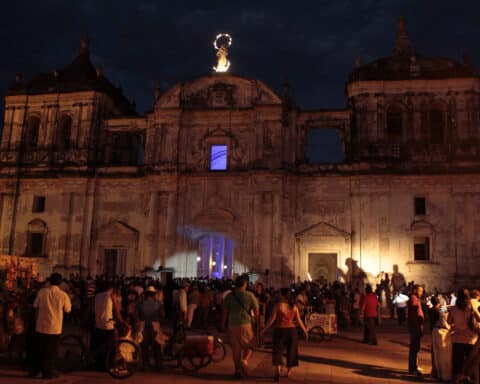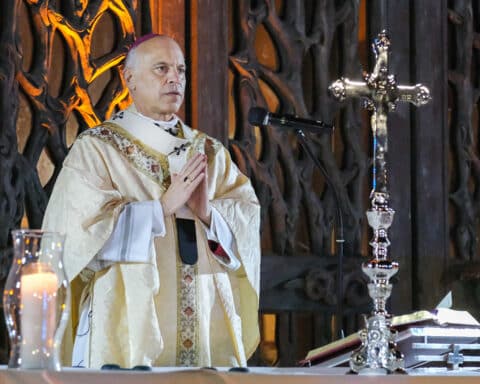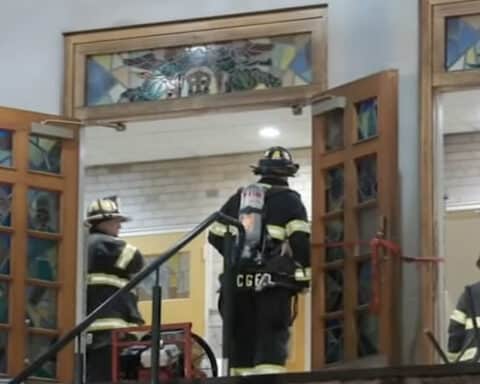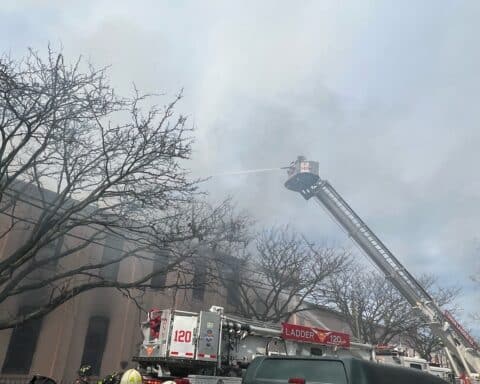When the Christian duty to share the Good News is brought up, it is usually in the context of verbalizing something. Artistic works, however, can complement words or show the way to salvation even more clearly.
Indeed, when words fall short in explaining the glorious truths of the Catholic faith, visual artistry comes in quite handy. The Catechism of the Catholic Church states the following, quite notably, in the treatment of the commandment not to bear false witness: “Truth in words, the rational expression of the knowledge of created and uncreated reality, is necessary to man, who is endowed with intellect. But truth can also find other complementary forms of human expression, above all when it is a matter of evoking what is beyond words: the depths of the human heart, the exaltations of the soul, the mystery of God” (No. 2500).
Echoing the call of the Fathers of the Second Vatican Council, the Catechism also states that
“bishops, either personally or through delegates, should see to the promotion of sacred art, old and new, in all its forms, and, with the same religious care, remove from the liturgy and from places of worship everything which is not in conformity with the truth of the faith and the authentic beauty of sacred art” (No. 2503).
An increasing number of diligent architects and artists across the country have been called upon in heeding this instruction. From California to Massachusetts, numerous churches have been recently renovated or built from scratch in order to eloquently and engagingly evoke the eternal.
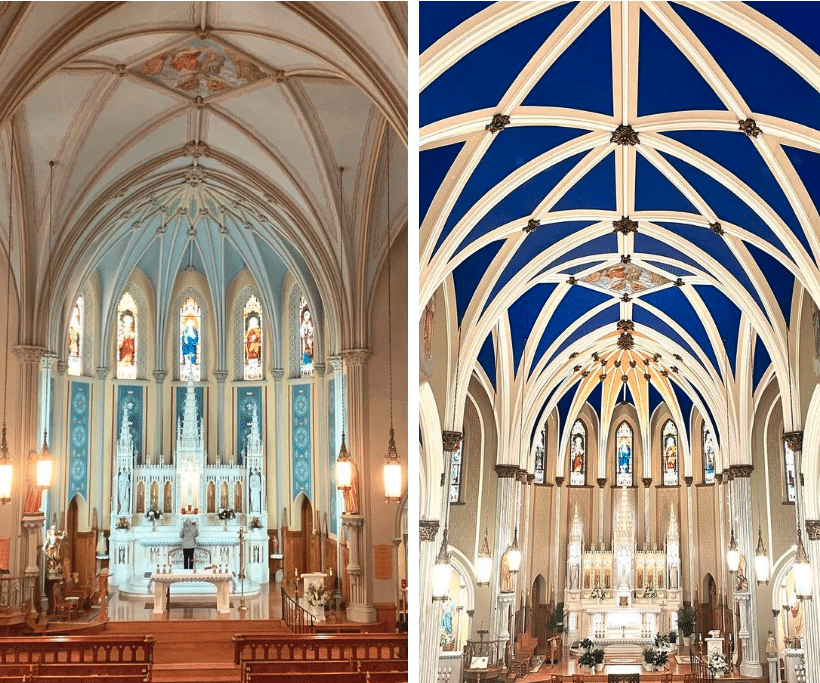
Update in Upstate New York
St. Mary’s Church in Ballston Spa, New York, actually looked quite good before its renovation in 2020. With vaulted ceilings, high altar and stained glass windows, the 7,800 square-foot Gothic structure built in 1867 was in much better shape than many churches built one hundred years later.
However, pastor Father Francis Vivacqua wanted to restore existing murals and add other elements, such as new flooring, sanctuary stenciling and a dramatic blue ceiling. The bolder color scheme’s aim was to remind visitors of the main reason they are in the church to begin with: to witness and become part of the glorious sacrifice of Christ, made present in the sanctuary.
To complete this project, Father Vivacqua chose, quite fittingly, Daprato Rigali Studios, which was founded around the same time the church was built. (Daprato Statuary Company started in 1860, and in 1881 John Rigali joined the company that would later change its name.) “I saw some blue, gold, and white ceilings Daprato Rigali Studios had painted before, as in Saint Alphonsus Church in Chicago and Saint Mary’s Cathedral in Peoria, Illinois. Then I thought of what was possible here, not only for the ceiling, but for the sanctuary and elsewhere.”
Lisa Rigali Galvin, great-granddaughter of John Rigali, found the St. Mary’s project delightful to work on. She said, “Overall, the church already looked nice, but we took areas of weakness and transformed them into areas of strength. The ceiling is a prime example. It looked delicate and fragile before, but now it looks strong and bold. This aesthetic quality brings with it the theological quality of making it easier to hold out hope for heaven.”
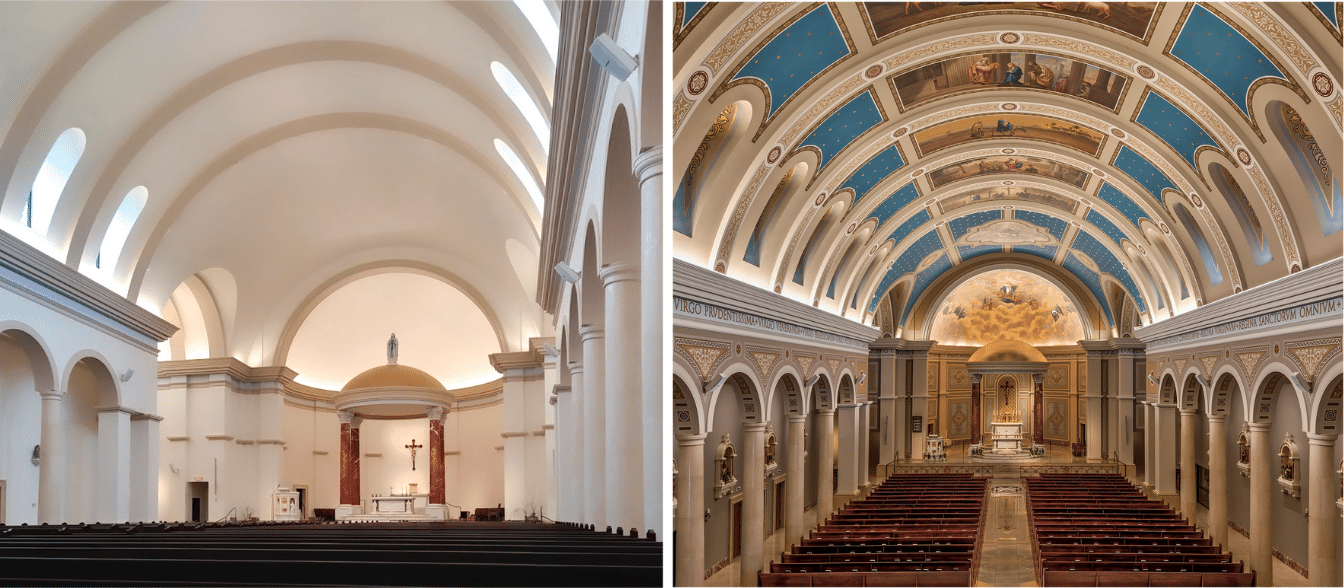
Melting snow in the desert with St. Bernadette
In 2016, a 24,400 square-foot church was built in Scottsdale, Arizona, in response to the great growth in the Diocese of Phoenix. The Romanesque structure named after St. Bernadette of Lourdes is the realization of the desire for a church that is both strong and elegant, not only for this generation, but many more to come.
After completion of the shell of the building and the basic interior necessities, funding was unavailable for bringing the interior completely to life. While the congregation was growing, the church building itself appeared barren for five years. White walls and white ceilings brought snow to mind more readily than anything Catholic.
The desire to bring the truths of the Faith to life inside the church was the motivation behind a successful fundraising campaign. Conrad Schmitt Studios, based in New Berlin, Wisconsin, was chosen to craft 34 colorful stained-glass windows and nine painted ceiling murals in 2021. Extensive gilding and decorative stenciling are also among the enhancements that give depth and context to the church, clearly distinguishing it as Catholic.
Possibly the most important feature relating to the life of St. Bernadette is the mural in the apse (semicircular vaulted ceiling in the sanctuary) of Mary as the Immaculate Conception. This was the title under which the Blessed Virgin appeared to a young Bernadette in 1858 in Lourdes, France.
Gunar Gruenke, grandson of Bernard O. Gruenke (who bought Conrad Schmitt Studios in the 1950s) serves as the company’s current president. He was also the manager of the Saint Bernadette beautification, whose goal he said was “to establish a worship space that speaks of God’s immense glory, shared with us through the Immaculate Virgin Mary. This grand theme provides a sense of holiness and reverence from the first step inside.”
The vast project has melted some snow in Scottsdale and replaced it with heavenly décor, resulting in possibly the most beautiful new church in the country. It has already won the Acanthus Award for Interior Design from the Institute of Classical Architecture and Art.
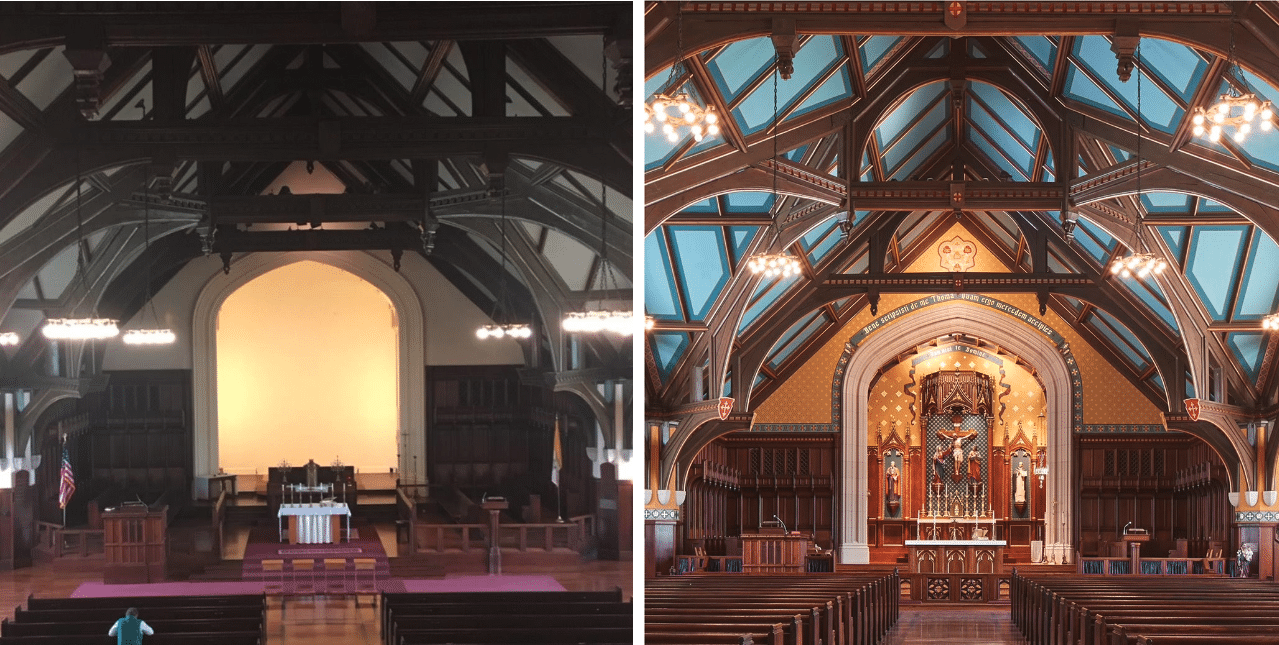
Facing east with St. Thomas Aquinas
One of Notre Dame’s professors and architect Duncan Stroik’s best known works is the Our Lady of the Most Holy Trinity Chapel at Thomas Aquinas College in Santa Paula, California. The 15,000 square-foot project completed in 2009 was said to be the first large-scale college chapel built in the United States in half a century. With its traditional look and 135-foot-tall bell tower, the chapel has garnered a lot of attention in Santa Paula, even from off-campus observers driving on the nearby freeway.
Thomas Aquinas College took to the road and in 2019 established a new campus in Northfield, Massachusetts. The site was once a Protestant seminary built in 1909 with an obviously non-Catholic chapel. Unlike Saint Bernadette and St. Mary churches, this project was not only about decoration, but structural changes as well. Architect Nicolas Charbonneau, principal at Harrison Design in Washington, D.C., was chosen to bring the transformation to completion.
In 2021 a new altar was installed where a pipe organ had once been located. Altar railings, reredos (artwork featured on the back wall of a sanctuary), two side sacristies and two confessionals were also added. New flooring was installed in the sanctuary and the nave (the main seating area), which also witnessed the creation of a center aisle through a pew reconfiguration.
Charbonneau explained, “The old chapel was decidedly non-Catholic. Visitors, as they walked directly under the choir loft and toward the nave, were greeted by a screen that forced them to turn left or right and enter the nave via one of the side aisles. There was no center aisle at all, which precluded central procession or direct genuflection.”
Charbonneau, who studied under Stroik at Notre Dame and graduated in 2009, said that now, after all the renovation work, the real presence of Jesus Christ is known, not only via the sanctuary lamp designating consecrated hosts in the tabernacle, but also in all the other distinctly Catholic elements added.
The overall theme has been called “Gothic revival with a Byzantine touch.” John Canning Studios, based in Cheshire, Connecticut, was chosen for decorative painting and other artistic elements. Not surprisingly, the icon featured to the left of the sanctuary is that of Our Mother of Perpetual Help.
Although at 8,300 square feet, the Perpetual Help chapel is smaller than the Holy Trinity chapel, it does display a grander color scheme. Charbonneau explained: “The chapel in Santa Paula is the distinguishing feature of the campus, being itself ‘iconic’ without icons on the inside. The chapel in Northfield is smaller, but has a more varied and dynamic color scheme.”
The Santa Paula chapel won the Palladio Award for New Design and Construction in 2011 and the Northfield chapel recently won a Bulfinch Award from the Institute of Classical Architecture and Art. While these awards are appreciated by the recipients, they are mere highlights of widespread recognition that occurs on a regular basis when souls view and make use of the structures.
Holy steeple, holy people
Pope Benedict XVI made some very astute assessments regarding the vital importance of sacred art for the furthering of Christianity. Before his papacy, he was quoted in “The Ratzinger Report” as saying that “the only really effective apologia for Christianity comes down to two arguments — namely, the saints the Church has produced and the art which has grown in her womb.”
He also made the striking observation that Christians “must make their Church into a place where beauty — and hence truth — is at home. Without this, the world will become the first circle of hell.” Because of the eternal truths it beautifully expresses, genuinely sacred art leads souls onto the path to heaven.
Thankfully, parishes collaborating with architects and artists on the “duty of beauty” are yielding glorious transformation after glorious transformation in churches across the nation.

